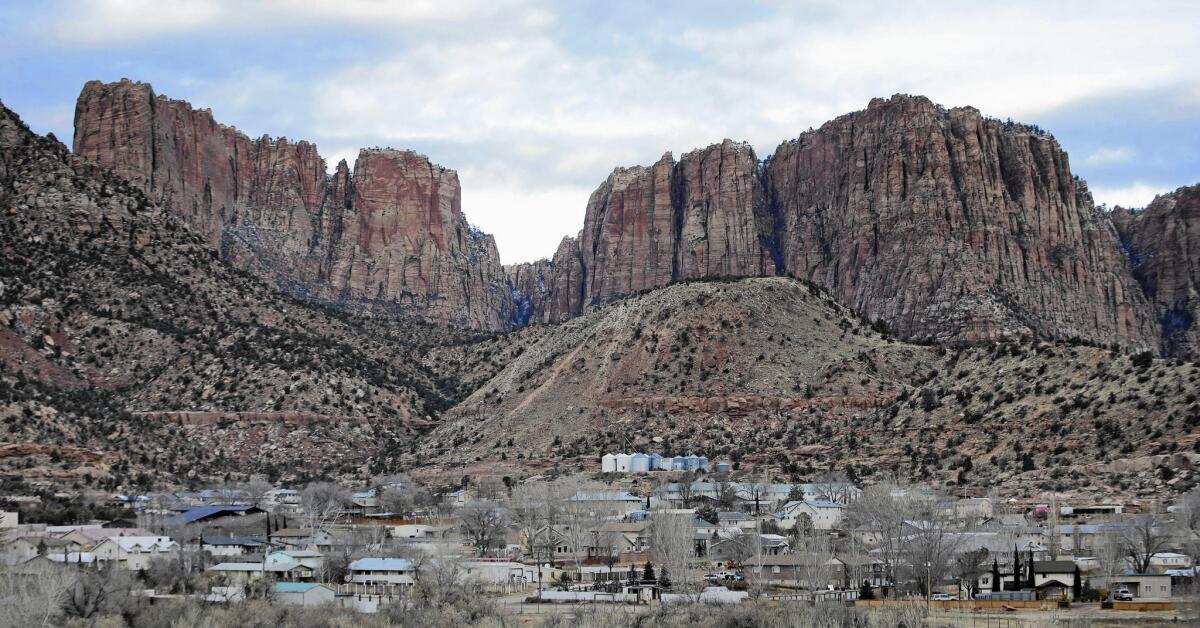Man who left Warren Jeffs’ sect tells jury he was target of vandalism and intimidation

- Share via
Reporting from PHOENIX — A former member of a polygamous religious sect that is the focus of a discrimination trial in Arizona described Thursday how he suddenly became the victim of vandalism and intimidation after he left the church.
Isaac Wyler said he complained to local authorities hundreds of times after his horse property was vandalized, including water lines and fences being cut, but the police did nothing because he was no longer a member of the Fundamentalist Church of Jesus Christ of Latter-Day Saints. He also described finding a dozen dead cats on his property.
“There are two sets of rules depending upon who you are,” Wyler told the jury in U.S. District Court.
Join the conversation on Facebook >>
Wyler is the second former member of the church, known as FLDS, to testify at the trial on behalf of the U.S. Justice Department. The sect broke away from Mormonism in the 1930s when the mainstream Church of Jesus Christ of Latter-day Saints disavowed polygamy.
The Justice Department accuses Colorado City, Ariz., and Hildale, Utah, of functioning as an arm of FLDS and discriminating against nonbelievers by systematically denying them housing, water services and police protection.
Police officers are accused of failing to investigate crimes against nonbelievers and assisting leader Warren Jeffs while he was a fugitive on charges of arranging marriages between men and underage girls. Jeffs is now serving a life sentence in Texas for child sexual assault.
The communities deny the allegations and say religion isn’t a factor in their decisions. They believe the government is discriminating against them based on their religion.
The case marks one of the boldest efforts by the federal government to confront what critics have said was a corrupt regime in both towns.
Wyler on Thursday provided a look into life in the towns. He said his hometown of Colorado City had parades, fairs and other social gatherings when he was growing up, but those activities ended after Jeffs took over as the church’s top leader.
“Everything changed,” Wyler said.
Wyler said that although he was forced out of the church in 2004, he had started to turn against it after he heard Jeffs call for the executions of the attorneys general of Arizona and Utah.
“That shook me up real bad,” Wyler said. “I don’t feel like I signed up for any religion like this.”
After leaving the church, Wyler went on to work part time as a consultant for a communal land trust that was once run by Jeffs but was seized by the state of Utah in 2005 amid allegations of mismanagement by church leaders. The trust is now controlled by the state and manages the housing within the community.
Wyler cited his work for the trust as evidence of how town leaders treat nonbelievers differently. He was once charged and convicted of trespassing for carrying out an eviction in his work for the trust, but noted that none of his complaints about vandalism at his property ever led to arrests.
“I feel like my complaints go into a bin that says ‘garbage’ on it,” he said.
ALSO
EPA official resigns amid water crisis in Flint, Mich.
‘Suge’ Knight drops Michael Jackson attorney in murder case
Mysterious odor at Fontana school sickens several students
More to Read
Sign up for Essential California
The most important California stories and recommendations in your inbox every morning.
You may occasionally receive promotional content from the Los Angeles Times.










